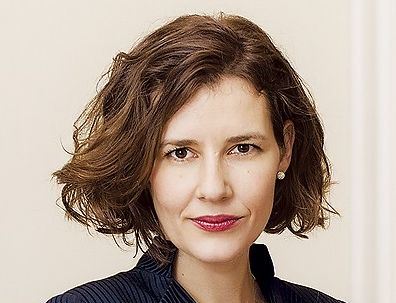
Dana Reizniece-Ozola
2 Nov 2016
Closing remarks by Latvia's Minister of Finance Dana Reizniece-Ozola at NIB's Anniversary Seminar
The speech was delivered at NIB’s 40th Anniversary Seminar “Financing the Future” held in Copenhagen on 2 November 2016
***check against delivery***
Good evening, ladies and gentlemen!
This year we celebrate the 40th anniversary of the Nordic Investment Bank. It is a remarkable event and I’m very honoured to be here and make the closing remarks.
The Nordic Investment Bank has become yet another example of splendid collaboration between the Nordic and Baltic countries. The Bank plays an important role in facilitating sustainable growth in the Nordic-Baltic region. It adds value and complements the private sector lending. But most importantly, the sustainability perspective for the long-term funding projects earmarks an additional dimension to the operations of the Bank, which we commonly regard as a seal of quality.
While the Nordic countries were the founders of the Bank 40 years ago, the format of this cooperation has been expanded since then and included the three Baltic countries. This demonstrates an ongoing deepening of the Nordic–Baltic collaboration not only in political and people-to-people matters, but also on financial and investment scale.
Here, I would like to highlight that Latvia’s cooperation with the Bank started already years before we became a part of the family. Since 1997 the Bank has financed number of projects that were important for Latvia. During the years of our partnership the Bank has intensified its operations in the Baltic States, doing an incredible job on improving competitiveness and economic environment of our countries.
I should highlight that the Bank is bringing the Nordic–Baltic area together in a very tangible manner by upgrading the transport infrastructure, establishing energy links and promoting closer economic cooperation in the region. The most remarkable projects being upgrade of the power generation and power distribution infrastructure, the construction of the power links from the Baltic countries to Finland and Poland, and launching of the LNG terminal in the Lithuanian port of Klaipeda, facilitating supply diversification and energy independence of the Baltic States.
In the past 24 years, the Bank has provided 129 loans with a total amount of 2.3 billion euros to the customers in the Baltic countries. I believe there are more opportunities for the Bank to expand its presence and energise its activities in the Baltics given that the availability of EU structural funds that overshadow alternatives of other international financial institutions, will start to decrease after 2020. On top of that, we will face impact of the Brexit effect already next year – when the UK will initiate the negotiations on leaving the EU. This is a signal for us, the Nordics and Baltics, to put an effort in attracting funding more actively.
A lot has been done during the years but we don’t want to stop here, instead we are looking into the future, and the theme of today’s seminar – Financing for the Future, marks another dimension for the Bank’s future, built on the possibilities of innovation. Innovation plays a critical role in shaping our future, and so does the finance – it allows organisations to conduct research, develop new technologies, commercialise new products and channel them to the market much faster. However, markets in general provide less finance for innovation than is desired in our societies. And this is why it is important for the governments to make use of different types of interventions aimed at increasing the amount of finance available for innovation activities.
This seminar is very special to me personally. In Latvia we are currently designing new Financial Strategy where innovation is a crucial element to define future path of the national financial sector and the ultimate dynamic goals. Innovative services, innovation in technology, even innovation in regulatory approach will increase availability of credit for borrowers and create new and less costly ways to raise equity, thus financing the future. Rapid development of the financial technology and innovation moves the centre of gravity of financial innovation towards market players outside the traditional financial system. Therefore, established trust and coherence of whole financial system should be maintained.
Markets require a set of well-functioning institutions in order to work effectively, and I believe that the Bank fully implements its mandate. Moreover, I have a strong confidence that the Bank will strengthen its presence in the Baltics expanding its lending portfolio.
Let me again thank all the participants and the Bank for organising this useful and thought-provoking seminar.
Thank you!